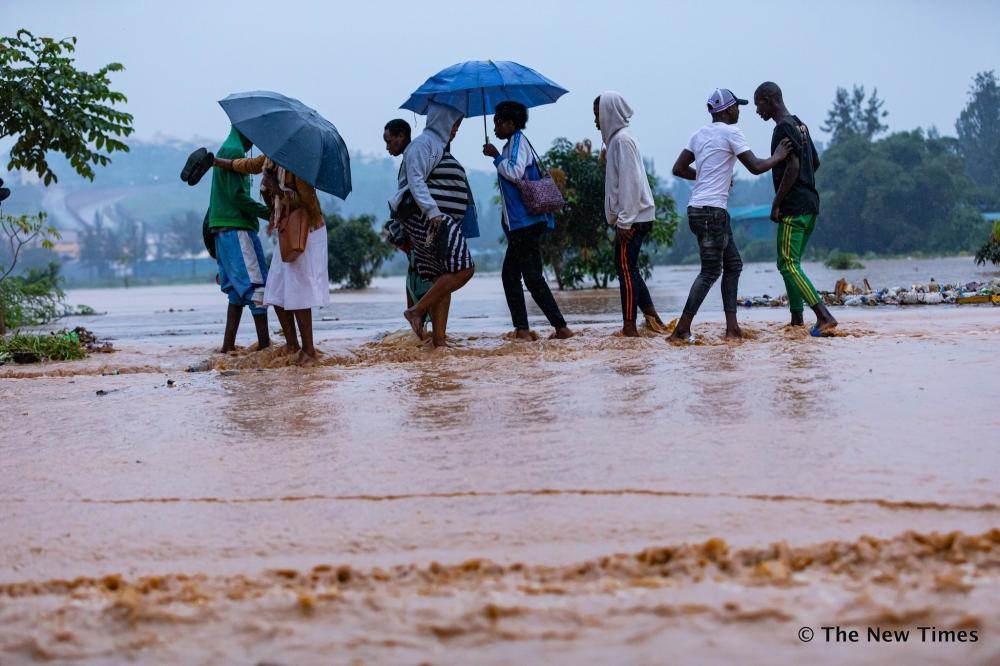Africa-Press – Rwanda. Dry weather conditions with sunny intervals during the day are expected to prevail across the country in the last ten days of August, according to Rwanda Meteorological Agency (Meteo Rwanda).
A report released on August 20 indicates that daytime maximum temperatures will range between 18°C and 30°C, while nighttime minimum temperatures are expected to range between 6°C and 16°C.
The projected temperatures fall within the Long-Term Mean (LTM) for this period. Rainfall is expected to range between 0 and 25mm, which is below the LTM for the last ten days of August. Normal rainfall for the same period ranges from 0 to 50mm.
Rainy days will range between one and two, depending on location, on August 25 and 26. Moderate to strong winds, ranging between 4 and 10m/s, are forecast across the country.
Temperature forecast by region
The highest maximum temperatures, ranging from 28°C to 30°C, are expected in the City of Kigali, Amayaga region, Bugesera, Ngoma, Rwamagana, Kayonza, Gatsibo, Kirehe, Karongi, and Nyagatare districts, and Bugarama plain.
The lowest maximum temperatures, between 18°C and 20°C, are expected in Nyabihu, parts of Musanze and parts of Rubavu.
Nighttime minimum temperatures will range between 6°C and 16°C. The lowest, between 6°C and 8°C, are expected in Nyabihu, Musanze, Nyamagabe, Nyaruguru, Rusizi, Nyamasheke, Rutsiro, and Rubavu.
The highest minimum temperatures, between 14°C and 16°C, are expected in central and western Kigali, Kamonyi, Ruhango, parts of Huye, Nyagatare, Gatsibo, Kayonza, and Kirehe, as well as Bugarama plain.
A hydrological and weather station that helps in monitoring levels of floods. Dry weather conditions with sunny intervals during the day are expected to prevail across the country in the last ten days of August. File
Rainfall forecast by region
Rainfall ranging between 0 and 25mm is expected countrywide, which is below the LTM for this period.
The highest amounts, between 20mm and 25mm, are forecast in Rubavu, Nyabihu, Musanze, and Burera.
Rainfall ranging between 10mm and 20mm is expected in most of the Western Province (except in some parts of Ngororero), Muhanga, Gakenke, Rulindo, western Gicumbi, Nyamagabe and Nyaruguru.
Amounts ranging from 5mm to 10mm are expected in Kigali, Nyagatare, Gatsibo, Kayonza, as well as parts of the Northern and Southern provinces (excluding Amayaga region. The rest of the country will receive less than 5mm.
Wind speed forecast
Moderate to strong winds, ranging between 4m/s and 10m/s, are expected across the country.
Strong winds of 8m/s to 10m/s are forecast in the districts of Kirehe, Karongi, Kayonza, Ngoma, Rubavu, Rutsiro, Nyamasheke, Rusizi, Musanze and Burera.
Moderate winds, ranging between 4 m/s and 6 m/s, are expected in Kigali, Amayaga, Bugesera, Rwamagana, Muhanga, Gakenke, Nyaruguru, Karongi, Ngororero, Nyabihu, Musanze, Burera, Rubavu and Rutsiro.
The remaining parts of the country are expected to experience winds between 6m/s and 8m/s.
The Minister of Foreign Affairs and International Cooperation, Olivier Nduhungirehe, has expressed optimism that Africa can end armed conflicts before the end of the decade if their root causes are addressed.
Nduhungirhe said this during a meeting on the sidelines of the 9th Tokyo International Conference on African Development (TICAD) in Yokohama on August 20, Nduhungirehe, where African and Japanese leaders discussed collaboration in various areas.
“We believe that our aspiration to ‘silencing the guns’ on the continent can be achieved by the end of the decade,” he said.
He noted that recent economic, geopolitical, and climate-related crises have disproportionately affected the continent, created new challenges and even reversed development gains in some aspect. Despite these setbacks, the minister reaffirmed Rwanda’s commitment to supporting peace across Africa, in part by contributing to peacekeeping operations, such as in Mozambique and the Central African Republic.
“Rwanda remains a committed partner to peace across our region. Ours is a holistic and human-focused approach to peace support,” Nduhungirehe said.
“At the formal request of partner countries, we have deployed forces in the Central African Republic (CAR) and Mozambique, and we continue to contribute to UN peacekeeping efforts in South Sudan and CAR. These efforts reflect my country’s commitment to African solutions to African problems.”
He further pointed out that the Kigali Principles on the Protection of Civilians, adopted in 2015, remain an essential framework to ensure “robust, effective, accountable, and people-centered peacekeeping.”
Highlighting progress on continental initiatives, Nduhungirehe noted that the African Union Peace Fund has reached its 400-million-dollar target, with increased participation from the private sector.
The Minister also commended mechanisms in pursuit of peace in DR Congo and the Great Lakes Region, saying that initiatives led by the East African Community (EAC) and the Southern African Development Community (SADC), under the coordination of the African Union, are instrumental in “supporting a sustainable solution for peace in the region.”
He added that these efforts are reinforced by ongoing diplomatic engagements, including the Washington Peace Agreement and the Doha Process.
However, he cautioned that deeper challenges must be addressed urgently for the conflicts to be resolved.
“Renewed urgency is needed in addressing the underlying root causes of conflicts such as bad governance, corruption, discrimination, and genocide ideology, which are deeply rooted in countries such as the DR Congo,” he said.
He also linked peace to Africa’s long-term development ambitions.
“While we strive to build more resilient digital economies, we are reminded that the foundation remains peace and stability… We believe that our aspiration to ‘Silencing the Guns’ on the continent can be achieved by the end of the decade.”
TICAD, launched in 1993 by the Government of Japan, promotes Africa’s development, peace, and security through strengthened multilateral cooperation. It is co-hosted by the United Nations, the United Nations Development Programme (UNDP), the World Bank, and the African Union Commission (AUC).
For More News And Analysis About Rwanda Follow Africa-Press






